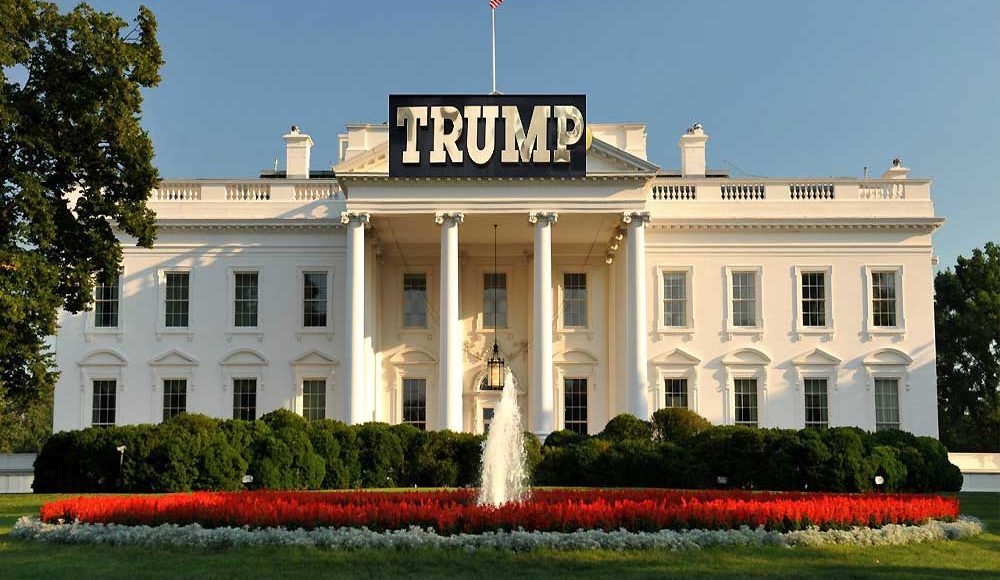Chapter 3 “A FLAWLESS CAMPAIGN”
By Ernest Kearney — H. L. Mencken, journalist and social critic had predicted it in 1920:
“As democracy is perfected, the office of president represents, more and more closely, the inner soul of the people. On some great and glorious day, the plain folks of the land will reach their heart’s desire at last and the White House will be adorned by a downright moron.”
Polls predicted the Republican candidate losing the vote.
They were correct. Roosevelt won the popular vote by nearly three million.
What the polls had not foreseen, nor the politicos, nor the media, nor FDR, nor Trump was that the White House would be won through the Electoral College in defiance of the people’s will.
Trump crowed to his elated supporters—
“We had a massive landslide victory, as you know, in the Electoral College. I guess the final numbers are now at 306…. One of the biggest Electoral College victories in history.”
Trump was wrong. In 14 Presidential elections prior to 1936, the victorious candidate had won more than Trump’s 306 electoral votes. What was historic were not the Electoral College results, but Trump’s winning the office despite losing the popular vote by over 2.5 million.
“I ran for the electoral college. I didn’t run for the popular vote,” Trump contended though he hadn’t even mentioned the Electoral College during his entire campaign.
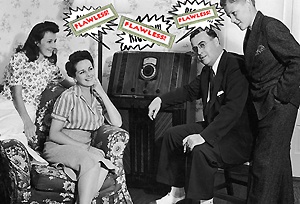
“I’ve had a beautiful… I’ve had a flawless campaign,” he beamed. “You’ll be writing books about this campaign…. We won with young. We won with old. We won with highly educated. We won with poorly educated. I love the poorly educated.”
When asked by reporters about Trump’s previous claims that he would lose because the election was rigged, he shrugged and replied—
“You’ve been hearing me say it’s a rigged system, but now I don’t say it anymore because I won. It’s true. Now I don’t care….“
And his supporters cheered undisturbed that Trump’s claims the election were “absolutely being rigged” were now shown to be utterly wrong or outright lies.
Trump hurriedly formed his cabinet:
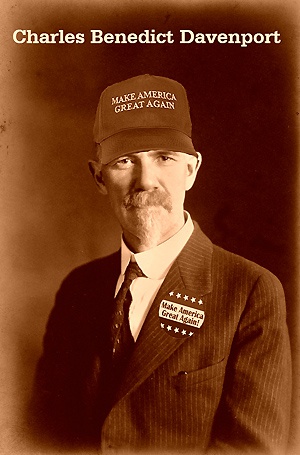
Secretary of State, Charles Davenport, advocated protecting the Anglo-Saxon Protestant race by restricting immigration of “undesirables,” and called for the sterilization of “defective” individuals.
Attorney General, Francis James Westbrook Pegler called on state governments to smash the AFL and CIO.
“Yes,” Pegler acknowledged, “that would be fascism. But I, who detest fascism, see advantages in such fascism.”
Secretary of Labor, Henry Ford, who insisted that the nation’s mass unemployment was due to individual laziness.
Secretary of the Treasury, Max Blanck was familiar to older New Yorkers. Trump explained his appointment by saying, “The only guys I want counting my money are short guys that wear yarmulkes all day.”
To fulfill his campaign promise to “Make America Great Again,” Trump immediately set about dismantling all that his predecessor had accomplished.
The Glass–Steagall Act which created the Federal Deposit Insurance Corporation to protect savings deposits, the CCC or Civilian Conservation Corps which put a quarter million young men jobs to work on local state projects and Roosevelt’s Social Security program were all repealed.

Secretary Henry Ford praised Trump for ending FDR’S Unemployment Insurance Program.
Trump’s intervention was unnecessary on the policy of “Cash and Carry” which FDR had been trying unsuccessfully to push through the isolationist congress in order to allow the US to sell needed war materials to Britain. It wouldn’t be until 1939, after the German invasion of Poland that these materials were the most desperately needed and FDR wouldn’t be there to push for it.
By May of 1937 half a year had passed without seeing the groundbreaking on the wall. The end of May, however, saw the completion of the huge gold bridge over the San Francisco bay, and in celebration of that mighty accomplishment President Trump named it after himself.
Those who had believed Trump’s claim he would fix the economy in his first week were disappointment at not seeing him fulfill pledge. Businesses were still failing and the Great Depression still raged.
When reporters reminded him of his campaign promises to end the Depression, President Trump shrugged and remarked, “I thought it would be easier.”
Trump reassured his supporters who asked why there was no wall yet—
“Ultimately, we have to have the wall on the border. If we don’t have the wall, we are doing nothing.”
To reporters who repeatedly asked about his failed policies, President Trump insisted—
“We have had tremendous success. But we don’t talk about it.”
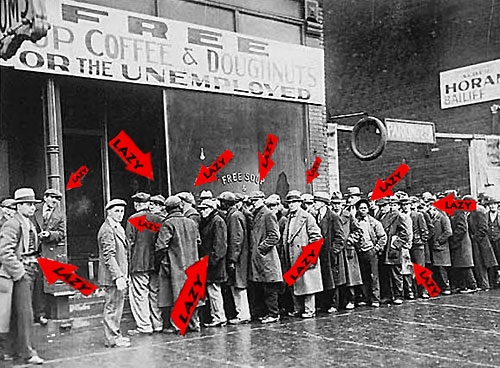
The continual rise in the unemployment rate forced Secretary of State Ford to a shocking conclusion: “laziness” is contagious! He quickly allocated the emergency distribution of 12 million cloth surgical masks to stem the endemic.
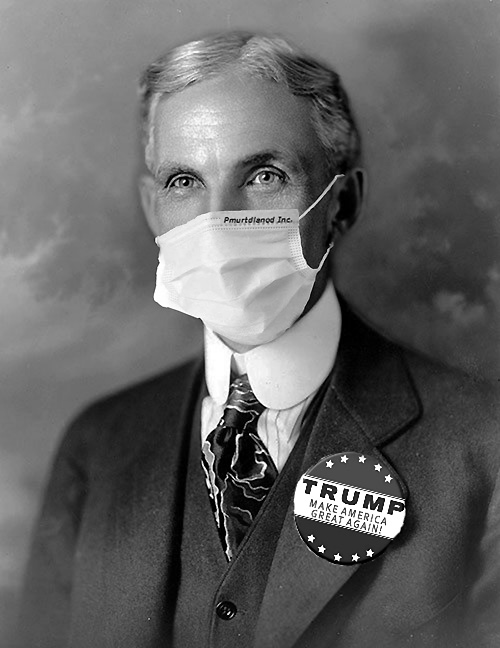
When the lucrative government contract for these masks were awarded to company called Pmurtdlanod Inc. without the standard practice of requesting bids, President Trump explained that he’d picked the company because it was the best at those masks.
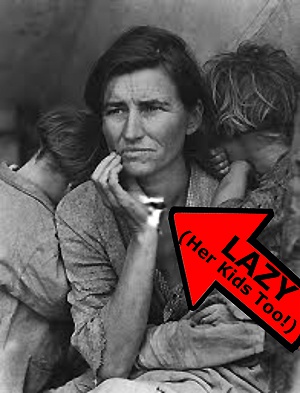
“Really great – really incredible – fantastic – believe me, really, really great – “
By his second year in office 1938, the economy worsened and despite his repeated insistence that “This administration is running like a fine-tuned machine,” there were growing voices that criticized his presidency.
Press conferences became a unpleasant chore for the President. Trump, berated a reporter, at one, who asked why his programs were failing by completely denying it and claiming it was all lies by the old guard.
“I was successful at everything I ever did and then I run for president, first time – first time, not three times, not six times. I ran for President first time and lo and behold, I win. And then people say oh, is he a smart person? I’m smarter than all of them put together, but they can’t admit it. They had a bad year… “
Speaking to his base of supporters he raised the specter of “fake news” and warned them—
“There is nothing the political establishment will not do – no lie that they won’t tell, to hold their prestige and power at your expense.”
When a reporter inquired of President Trump if he had proof of his charges he answered—
“Any negative polls are fake news.”
The year ended with calls from Congress for an investigation into the multimillion-dollar contract for the surgical masks Secretary Ford had requested. Apparently, suspicions were raised about the company after one of the Senate’s young pages pointed out that its name, Pmurtdlanod Inc. was “Donald Trump” spelled backwards.
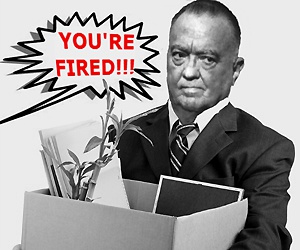
President Trump took to the airwaves. “There is no investigation,” he informed his listeners, assuring them he had even asked J. Edgar Hoover, the head of the FBI, at three separate times if he was being investigated and Hoover had told him all three times “No.”
The following day, however, Hoover issued a statement in which he denied that he spoke to the president even once nor told him he was not under investigation.
President Trump fired him.
In his next Fireside Screech ranted disdainfully on about the press.
“They don’t write good,” he barked. “They don’t — they don’t write good. They don’t know how to write good.”
His voice grew shriller as he went on.
“They will attack you. They will slander you. They will seek to destroy your career and your family. They will seek to destroy everything about you, including your reputation. They will lie, lie, lie.”
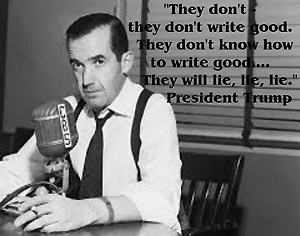
Trump’s battles against “Fake News” now involved both radio and print outlets:
The American Broadcasting system: “Lost all credibility…”
Associated Press: “Shameful reporting…no credibility…stories are fictional garbage.”
Columbia Broadcasting System: “Covers me very inaccurately….”
Time Magazine: “So biased.”
Vanity Fair: “A dying magazine! Really, really boring…really, really thin.”
National Review: “Failing publication…only knows how to criticize…”
New York Magazine: “Dishonest writers…failure…sad.”
Wall Street Journal: “Nobody cares what they say in their editorials…dummies.”
Washington Post: “Most inaccurate stories of all…really dishonest reporting.”
New York Times: “Truly one of the worst newspapers…knowingly writes lies…really bad people…who can believe what they write after the false, malicious & libelous story they did on me?”
New Hampshire Union Leader: “Lost all credibility…”
New York Daily News: “Dying…loser newspaper.”
In September of 1939, with Germany’s brutal and unprovoked invasion of Poland, the long-feared war seemed about to engulf Europe. The United Kingdom and France both delivered an ultimatum to Germany demanding an end to hostilities.
There was a call from many in America for the United States to support the effort to end the German assault by adding its name to the ultimatum in the hopes of preventing an escalation of the aggression.
At his next press conference Trump scoffed at journalists for not understanding the “big picture” about the rise of fascism in Germany. “It is something that I think is frankly, maybe, not as difficult as people have thought over the years,” he shrugged.
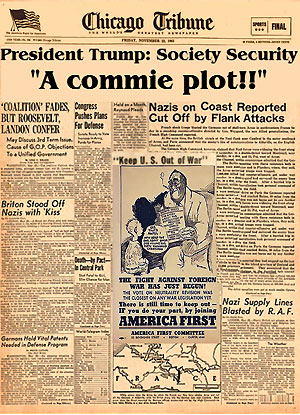
“It’s a very semi-complicated,” he said disdainfully of those who expressed apprehension at a possibility of a larger European conflict. “Not too complicated if you’re smart – but it’s a semi-complicated problem.”
Asked to share his impression of the German dictator, Adolph Hitler, Trump replied—
“If he says great things about me, I’m gonna say great things about him. I’ve already said he is really, very much of a leader. I mean, the man has very strong control over a country. And that’s a very different system and I don’t happen to like the system. But, certainly, in that system he’s been a leader, far more than our [former] president [had] been a leader.”
Stunned looks suddenly washed over the faces of the reporters at Trump praising the German dictator over Roosevelt.
One reporter found the voice to call out, “Do you admire Hitler?”
“He’s now President for life,” Trump answered. “President for life. I think it’s great. Maybe we’ll have to give that a shot someday.”
The room was crackling with the frantic scratching of granite pencil tips on pads, as the journalists tried to get down all Trump said.
“Okay I can tell you, I have the support of the police, the support of the military. I have tough people, but they don’t play it tough until they get to a certain point and then it would be very bad, very bad.”
The commotion calling for follow-up questions rocked the press room as Trump stormed out.
The next day Attorney General Pegler held his own press conference to defend the President from claims by the “fake news” that compared Nazism and “Trumpism.” Pegler was adamant, labeling the accusation preposterous.
Nazism, Pegler pointed out, was anti-liberal, anti-intellectual, anti-immigrant, pitted people against one another, and substituted empty hyperbole like “Awake Germany!” in place of real policies.
That same night Trump took to the airwaves informing the people, “I want you all to know that we are fighting the fake news. It’s fake, phony, fake. A few days ago I called the fake news the enemy of the people, and they are, they are the enemy of the people.”
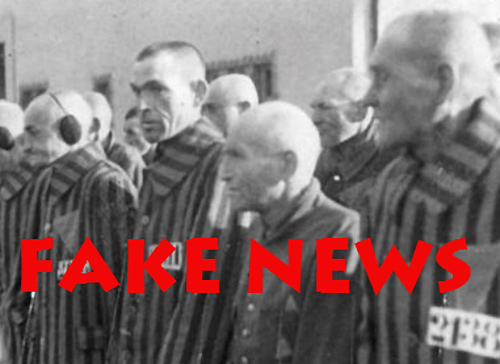
Trump told his listeners that he wanted to make sure his message was getting out to them, and in order to do that he was discontinuing all press conferences.
As always, he ended by assuring his audience he would “Make America Great Again.”
* * *
If Trump Had Run for President in 1936—PART IV
Continues
Chapter 4
“What are we Having it for?”
Click HERE
Like us on Facebook
Follow us on Twitter @theTvolution
Stay Updated: Find our Subscription Box on the Left Rail
Contact Us: TheTvolution@gmail.com
We Thank You for Supporting Independent Voices
The Tvolution





